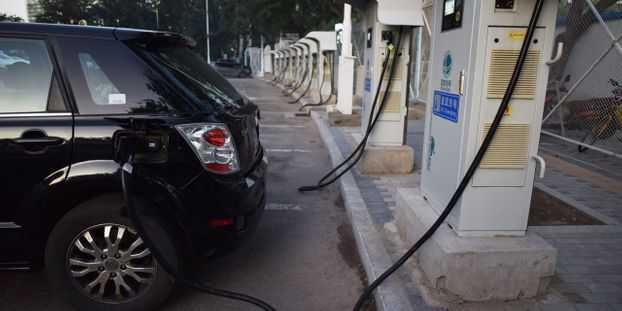A colossal aid of 3.2 billion euros to develop a European sector of electric batteries: Brussels has given the green light to this "Airbus batteries", which intends to compete with Asia for cleaner transport. The payment of this public money, by seven Member States including Germany and France, to a consortium of 17 companies, was authorized Monday by the European Commission. This aid must generate the mobilization of "additional 5 billion euros in private investment", which will allow Europeans, hope Brussels, to face the Chinese producers, very much ahead in this sector.
In detail, Germany is authorized by Brussels to invest up to 1.25 billion euros. Then come France (960 million), Italy (570 million), Poland (240 million), Belgium (80 million), Sweden (50 million) and Finland (30 million). This "important project of common European interest" (PIIEC) will have 17 direct participants from the entire sector, such as the BMW car manufacturer or BASF chemists and the Belgian Solvay, but also small and medium-sized enterprises (SMEs). These companies will collaborate "closely with each other and with more than 70 external partners", companies but also "public research organizations from all over Europe", according to the Brussels communiqué.
A ten-year project
The goal of the project, which runs until 2031, is to develop lithium-ion batteries "that have a longer life", "recharge faster" and "are safer and more environmentally friendly that batteries currently on the market. " "The demand for batteries is expected to increase very rapidly in the coming years," according to the Commission. However, the delay of European countries in the battery sector, particularly against China, is regularly noted by the players in the automotive sector.
According to the Commission, the "significant technological and financial risks" that accompany this large project justify the granting of such public aid. But "a significant portion of the additional profits made by participants will be shared with taxpayers through a recovery mechanism," she says.

